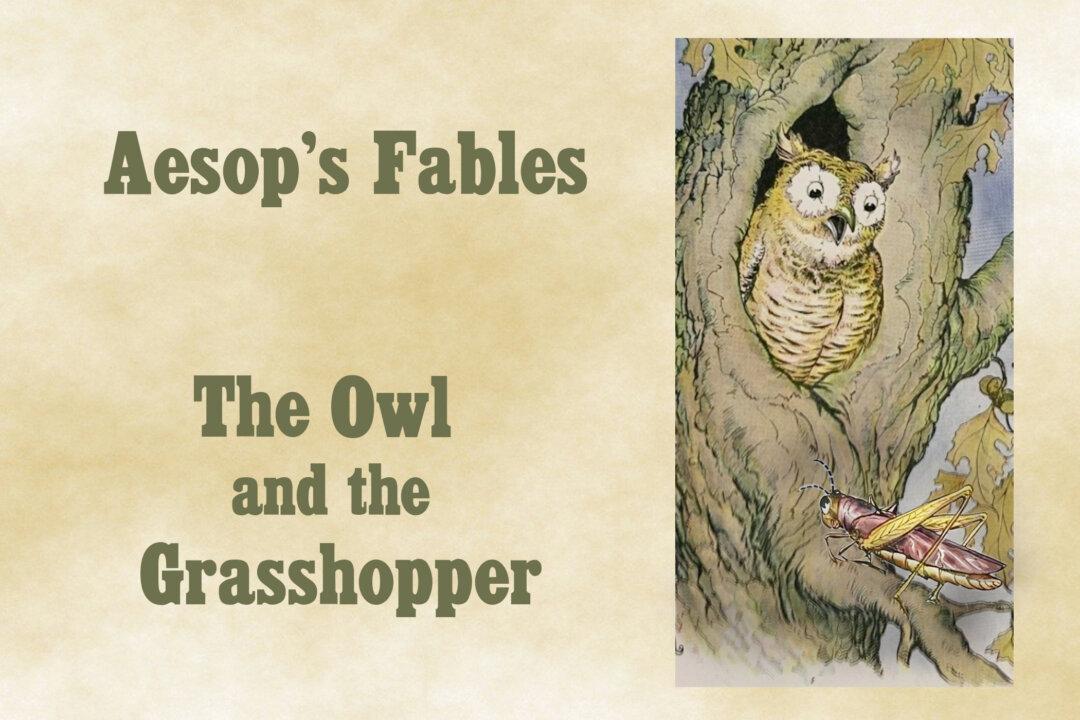The Owl always takes her sleep during the day. Then after sundown, when the rosy light fades from the sky and the shadows rise slowly through the wood, out she comes ruffling and blinking from the old hollow tree.
Now her weird “hoo-hoo-hoo-oo-oo” echoes through the quiet wood, and she begins her hunt for the bugs and beetles, frogs and mice she likes so well to eat.






